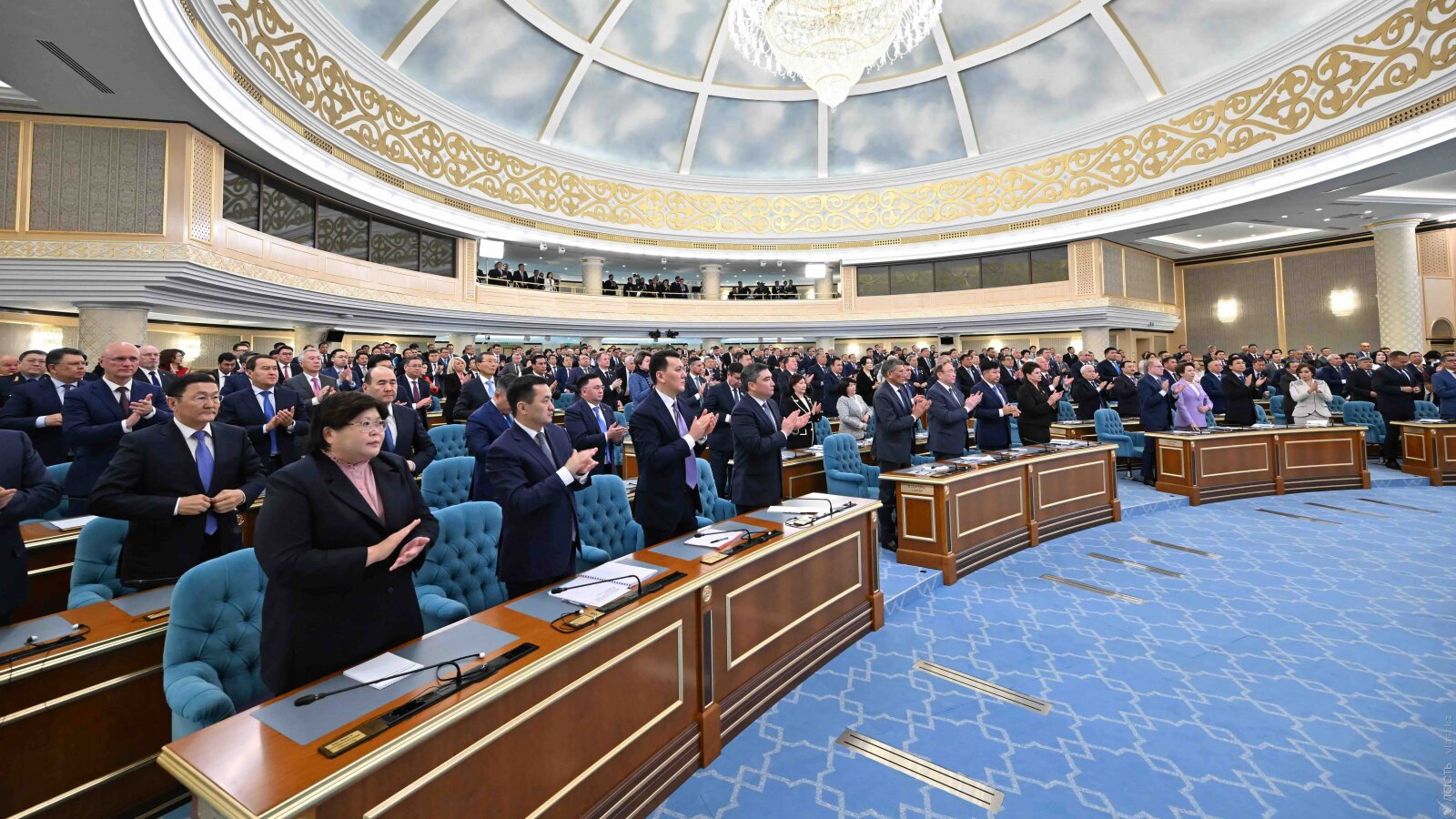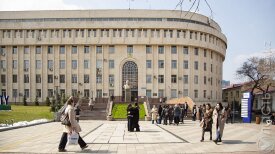The closing ceremony World Nomad Games in Astana was held on September 13 without spectators, due to budget cuts, the organizers said in a statement. The ceremony was broadcast on state TV.
On September 2, the government said they would not allow journalists to attend the briefing on the implementation of the presidential orders and that the meeting will be streamed online. On September 6, the government banned a journalist from Press.kz from its premises alleging violations to the accreditation rules. The Journalist Union called for a review of the new accreditation rules the following day.
The State of the Nation
In the five years since his coming to power, Kazakhstan’s President Kassym-Jomart Tokayev claimed to have successfully established a dialogue between the government and the population. In his speech to the nation on September 2, Tokayev noted that “irresponsible populists” have been detrimental to his plan to establish a “listening state”.
In his speech, Tokayev also denied that “any oppression on any grounds” exists in Kazakhstan. Instead, he pointed to “biased individuals” who attempt to manipulate public opinion and sow discord from abroad. As always, however, he did not name anyone.
Tokayev set October 6 as the date for the referendum on the prospective construction of a nuclear power plant. The Prosecutor’s Office said on September 12 that eight polls regarding the upcoming referendum were carried out illegally. Activist Abzal Dostiyar was fined the day before for conducting a poll through his YouTube channel.
During his speech, Tokayev fielded the idea to establish different income tax rates. Kazakhstan had a progressive income tax regime until 2007, when a flat rate was set at 10%. Tokayev has lodged the idea of a progressive tax regime since 2020.
Tokayev also proposed to increase taxes for banks, against the backdrop of the help and bailouts that the government ensured during the crises over the past 15 years. He also said that companies that use massive amounts of electricity should also pay more taxes, because electricity prices are highly subsidized.
Economy
The Central Bank said on September 2 that it will sell around $1 billion of its National Fund assets to ensure transfers to the republican budget. In August alone, via this scheme, the National Fund transferred $546 million to the budget. On September 12, deputy minister of economy Azamat Amrin said the government plans to transfer an additional 1,5-2 trillion tenge (up to $4.2 billion) to cover the budget deficit. These transfers have become a traditional, rather than exceptional, way to support the budget deficit.
Next year, the government plans to withdraw 5.3 trillion tenge ($11.1 billion) from the National Fund, according to a new three-year budget plan that is being discussed in parliament.
In 2025, the cost of servicing the sovereign debt will amount to 25% of all budget expenditures, a spokesperson for the Supreme Audit Chamber said on September 12. As of January 2024, the debt amounted to 27 trillion tenge ($56 billion), or 23% of the country’s GDP. Next year, the government plans to spend 6.1 trillion tenge ($12.7 billion) to pay back some of this debt and the interest it accrued.
The state-owned holding Baiterek valued Bereke Bank’s assets at 2.06 trillion tenge ($4.3 billion), with obligations for 1.66 trillion ($3.5 billion), according to a quarterly report published on September 6. Baiterek sold Bereke to Qatar’s Lesha Bank in March for only 65 billion tenge ($135 million).
Ratings agency Moody’s upgraded Kazakhstan’s credit rating on September 9 to Baa1 with a “stable” outlook. This is Kazakhstan’s highest rating since Moody’s started its monitoring of the country. The ongoing reforms “have a positive effect on political stability,” the agency said.
Politics and Society
Askar Sadykov, a member of parliament for the Ak Zhol party, was stripped of his mandate and expelled from the party due to harassment and abuse of office, Azat Peruashev, Ak Zhol’s leader, said on September 4. According to the party, Sadykov allegedly “interfered in public procurement procedures”. The Central Election Commission had expelled Sadykov from parliament on August 29.
Yerbol Myrzabosynov, the former deputy head of the National Olympic Committee, was appointed minister of tourism and sport on September 2. Myrzabosynov replaced Yermek Marzhikpayev, who only stayed on the job for a year.
Around 150 workers at two oil service companies went on strike on September 13 in the western region of Mangistau. Kunan Service and Akadi Holding are both companies that have contracts with Mangistaumunaigaz (half-owned by the state company Kazmunaigas), operating the Kalamkas oil field. The workers had unsuccessfully asked for a 50% raise in salaries and additional benefits.
International
The Uzbek and Russian atomic agencies signed on September 11 an agreement to kick-start construction at Uzbekistan’s first small modular reactor at the prospective 330 MW nuclear plant at Lake Tuzkan, near Jizzakh. Rosatom will build six 55 MW reactors on the site, which is poised to alleviate Uzbekistan’s dependency on energy imports. Rosatom is also in the running to build a nuclear power plant in Kazakhstan, should the government give its green light after the upcoming referendum.
Kyrgyzstan removed the Taliban from its list of banned organizations on September 7, in an attempt to normalize relations with the group, which has ruled Afghanistan since 2021. Kazakhstan had taken similar steps last December.
Note: This edition covers the two weeks between August 31 and September 13.
Поддержите журналистику, которой доверяют.








